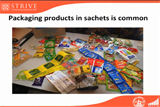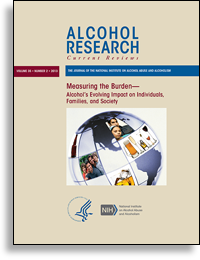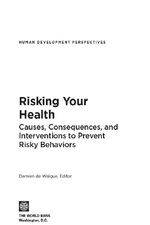Alcohol and drug problems
For many, consuming alcohol may seem an easy way to cope with everyday problems. That view is certainly reinforced by images in alcohol promotions that hammer home the notion that alcohol offers a taste of luxury, recreation, and entrée into a world free of everyday worries. Not so apparent are the myriad health and other problems created by alcohol use that impose additional burdens on poor people, generate substantial problems for society, and become onerous stumbling blocks for development.
Plastic sachets with liquor a public health problem in Tanzania
Tanzania has experienced the same increasing problem with hard liquor sold in plastic sachets as a number of other countries in Sub-Saharan Africa. The Tanzanian situation was presented by Dr Gerry Mshana in a STRIVE Learning Lab recently. Dr. Mshana focused on the effect of macro-economic factors such as pricing and packaging on alcohol drinking norms among young people.
NIAAA: Measuring the Burden
Research update on alcohol's impact on individuals, families, and society
The current issue of the journal of the National Institute on Alcohol Abuse and Alcoholism (NIAAA, USA), Alcohol Research: Current Reviews carries a number of articles about the impact of alcohol globally and in the United States. The full issue or individual articles are available online in pdf or various e-book formats.
PAHO online resources:
Self learning on alcohol and drug policy
The Pan-American Health Organization (PAHO) has introduced Self-Learning Courses on several aspects of alcohol and drug harm and policy. The virtual courses may be accessed by anyone and are available in English and Spanish.
The alcohol situation in Malawi documented in new research report
A modest proportion of Malawians - 14 per cent - are alcohol drinkers. On the other hand, those who do drink have a high and risky consumption level. These were two of the key conclusions in a report presented to the Malawian Minister of Health Wednesday. The report has mapped drinking habits in Malawi.
New World Bank Report
Risking your Health
The World Bank recently released the report "Risking your Health: Causes, Consequences and Interventions to Prevent Risky Behaviors". It warns that risky behaviors are increasingly prevalent globally, particularly in developing countries, and constitute a growing threat to the health of individuals and their populations.
World Bank report recommends evidence-based alcohol policies to reduce road traffic injuries in Africa
Controlling non-communicable diseases and road traffic injuries are key public health issues in Africa, concludes a new report from the World Bank. The report recommends population-based interventions to regulate availability and marketing of alcohol to reduce the number of injuries from road traffic.
160 Swedish CSOs recognize alcohol as a hindrance to development
The Swedish NGO umbrella organisation “Forum Syd” has adopted a policy document which points at alcohol as a hindrance to development and a factor which can obstruct work for rights and poverty reduction. 160 NGOs are members of Forum Syd
Global Burden of Disease figures show: Alcohol grows as risk factor for death and disability (corrected version)
Alcohol is the leading risk factor for death and disability in Southern sub-Saharan Africa, Eastern Europe and in parts of Latin America. This is one of the conclusions from a new calculation of the Global Burden of Disease. The new study is based on figures from 2010 and these figures are compared to a similar study from 1990.
Alcohol and improved health:
Premature to conclude that there is a causal relationship
Media regularly quote reports on possible linkages between moderate alcohol consumption and improved health. Dr. Hans Olav Fekjær has reviewed the evidence in a new article in Addiction. – It would be premature to conclude that there is a causal relationship.
Edmonton, Canada, 23 - 25 September 2013
Conference on the prevention of FASD
The first international conference on prevention of FASD will take place in Edmonton, Canada, 23-25 September 2013. The conference will discuss promising approaches for preventing harm to the fetus caused by mother’s use of alcohol during pregnancy.









